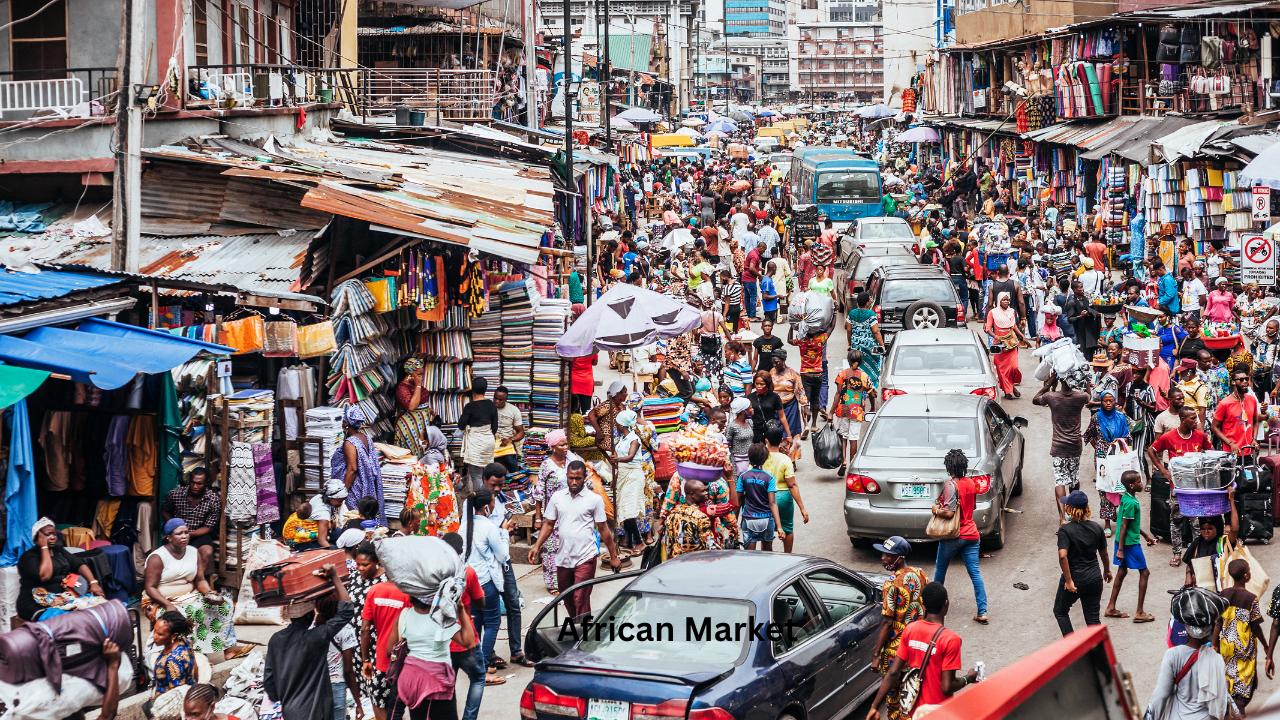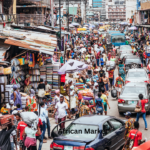The African market is, without a doubt, one of the fastest-developing economies in the world.
With a gigantic population of 1.3 billion citizens residing across 54 different nations, both native and other investors are becoming stoked at the sights of these countries in Africa.
This article probes into the intricacies of the African market, looking into its present condition, main areas, problems, and future prospects.
Overview of The African Market
Economic Growth and Trends
The economy of Africa has shown its strength over the last decade. In 2019, the gross domestic product of the continent swelled by 3.4%, according to the African Development Bank, before the start of the COVID-19 pandemic.
The pandemic led to a decline in 2020, but the continent’s economy is on track to recovery, with the International Monetary Fund (IMF) forecasting a growth rate of 3.4% for 2021 and 4% for 2022.
Regional Economic Blocks
Africa is divided into several regional economic communities that are essential to each integration opportunity and trade. The following blocks are major:
The West African Economic Community (ECOWAS)
The East African Community (EAC)
The Southern African Development Community (SADC)
The Eastern and Southern African Common Market (COMESA)
Key Sectors in the African Market
Agriculture
At the heart of The African Market economies, the agricultural sector ensures jobs for about 60 out of every 100 Africans. The sector adds 23% to the GDP of the continent, on average.
The provision of technology and increased productivity through means like modernization, value addition, and the use of the latest agricultural techniques can be key drivers of the growth of this industry.
Technology and Telecommunications
Technology in Africa is growing exponentially, with tech hubs, startups, and the increase in the use of mobile phones being the key to this success. In 2021, there were over 600 technology hubs across the whole continent.
The mobile phone subscription has outstripped 1 billion; this trend, in turn, has given birth to new innovations in mobile banking and e-commerce.
Natural Resources and Mining
Africa houses many of the world’s natural resources like oil, gas, and minerals. The continent heads about 30% of the world’s mineral reserves, 8% of the natural gas, and 12% of the world’s oil reserves.
Nigeria, Angola, and Algeria are good examples of countries that depend on oil production, whereas South Africa, Ghana, and DR Congo dominate the mining sector.
Manufacturing
The manufacturing industry in Africa is in the process of an ‘up and coming’ stage, contributing about 11% to the GDP in Africa.
A number of countries like South Africa, Egypt, and Morocco for example, have quite a developed manufacturing sector, while a portion of the other countries are coming up with industrialization strategies to avoid their economy-battering.
Market Entry Strategies
Understanding Local Contexts
Making profits by enjoying the benefits above from the business in the African market can only be possible by having a thorough knowledge of cultural traditions, client behavior, and regulatory background.
Each state presents its peculiar traits, and a one-size-fits-all approach is less likely to work.
Partnerships and Joint Ventures
Frequent ways for the market entrance of foreign companies in Africa are through forming partnerships or joint ventures with native sellers.
This method can help them pass through the rugged paths of the business journey and, either make good use of local connections or gain local skills.
E-commerce and Digital Strategies
With the technology and the growing number of people who are now internet users, online retail business is becoming a viable option for entrepreneurs.
Jumia is the forerunner of all the others, the ‘Amazon of Africa,’ thus bringing the reality of online shopping on the continent.
Challenges in the African Market
Infrastructure Deficits
A poor infrastructure network is one of the many problems affecting many African countries. The electricity supply is erratic, the road network is weak, and the ports are not up to international standards.
The gap in funding for The African Market infrastructure is approaching $108 to $68 billion, which the African Development Bank estimates.
Political and Economic Instability
Some African countries are politically unstable in economic fluctuations causing a challenge to the businessmen and investors. One of the advantages of African countries is the improvement of governance and economic management in many countries.
Regulatory Challenges
Compliance with regulations is difficult in some areas of Africa. Troubles with bureaucracy, fight against corruption, and inconsistencies in adopting new formats to policies are the tribulations that remain on the path of businesspeople.
Access to Finance
The majority of the Africa startups, including small and medium-sized enterprises (SMEs), have seen difficulties in obtaining funds.
In Africa, most bank institutions do not serve small businesses. The major big corporations take most of the banks’ loans with little or no funds available for small businesses.
Opportunities and Future Prospects
African Continental Free Trade Area (AfCFTA)
The AfCFTA is the agreement officially launched in January 2021 and aimed at setting up the largest free trade area for the world’s aggregates.
This is a prospect for growth that Africa has to pick on since intra-African trade is still at around 16% of the total African export, a rate that can hardly be matched to the 59% in Asia and 69% in Europe.
Demographic Dividend
The reason is the young population in this part of the world that makes Africa stand out as the youngest continent on earth with a median age of 19.7 years. These people who are mostly freshly out of school and just secure a job literally will increase demand for education and other perishable items.
Green Economy and Renewable Energy
Lots of African states are turning to renewable energy and sustainable development. Africa is blessed with an abundance of renewable energy resources that include solar, wind, and geothermal sources. These can be utilized to generate green energy and create job opportunities from investments in the green tech sector.
Urbanization and Infrastructure Development
The rapidly increasing number of people living in African cities demands an ever-increasing amount of housing, infrastructure, and urban services. This emerging trend opens up a scope for jobs in the construction, real estate, and urban planning sectors.
Conclusion
The African Market has more prospects for entrepreneurs and investors who can actualize the potential of its challenges, some of which are still out there.
Moreover, apart from problems, the increasing population of the continent, the urbanization process, and the new initiatives for economic integration provide the ground for giving a rational faith to those challenges.
Enjoying success in the African market demands a thorough awareness of the local scenes, innovative strategies, and a long-term commitment. The continent is moving towards faster development and integration so that it will be a more important participant in the world economy.








